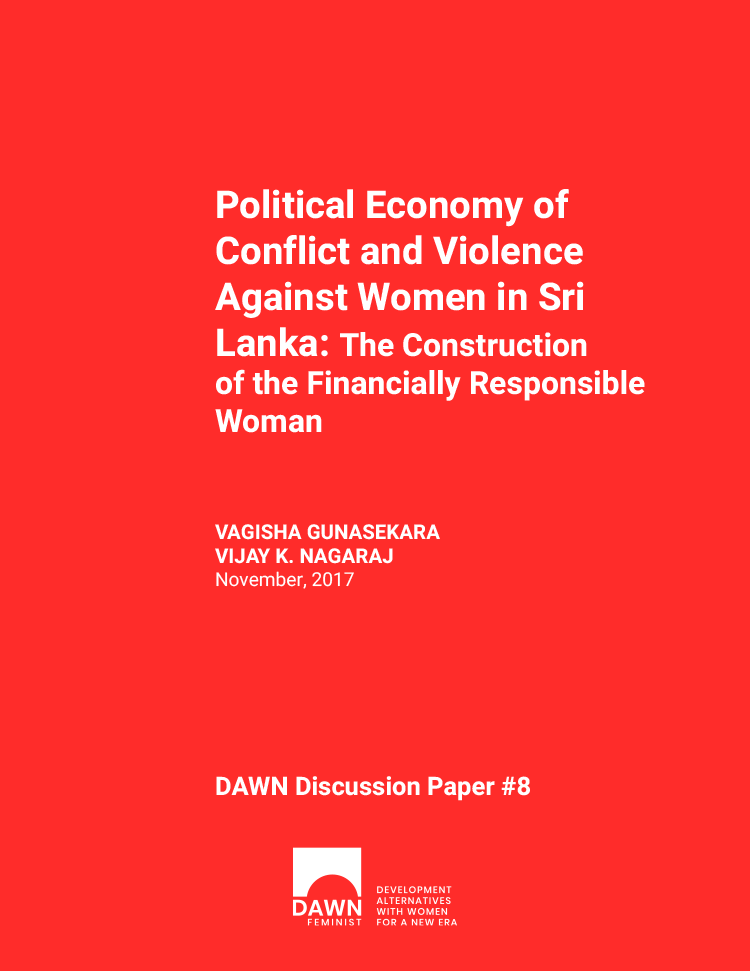Point of departure
Sri Lanka is on the cusp of a transition into a Third Republican era with Constitutional reform and transitional justice processes currently underway. Debates around these processes have however failed to stimulate attention to the structured nature of gendered violence inherent in political economic arrangements threading through the pre-war, war- and post-war periods. Ongoing contestations and struggles, largely in the human rights arena, concerning war-related violence against women remain primarily fixated on certain harms especially rape and sexual violence while the gendered violence re-produced by political economic structures remain marginalised. At the same time, discourses on women and post-war economic development and repair, focusing as they do on particular entitlements especially livelihoods, have often failed to consider how heteropatriarchy as a frame of abuse is in fact reproduced through these very political economic arrangements and structures.
Despite new theories offering more nuanced understandings of the changes and continuities in political, economic, social and ideological structures in relation to armed conflict, there is a paucity of gender analysis in the literature. A handful of studies focus on gendered economic links that operate during war (Nordstrom 2004) while others point out that we need to not only understand what happens to women within the political economies of war, but also why (Raven-Roberts 2013). The point is that there is a need to link gender and political economy in ways that make feminist sense not only of the egregious forms of violence against women—at the apex of which apparently stand rape and sexual violence—but also the everyday violence, which, by the way, includes sexual violence, experienced or reproduced through the everyday political economic relations.
Placing gendered political economic relations at the centre rather than the war and the conflict itself enables us to place the latter two in perspective rather than accord them the over-determining status they so often enjoy in contexts like Sri Lanka. Grounded in the post-war context of Sri Lanka, this paper essentially argues that the dynamics of mutual accommodation and constitution involving gender and violence can be mapped in terms of distinct and gendered relations of violence, specific modes of accumulation and dispossession, as well as certain modes of power and control. Such an approach or framework will in turn be useful, we hope, in understanding the mutually constitutive nature of gendered violence and political economic relations in the context of war and conflict.

